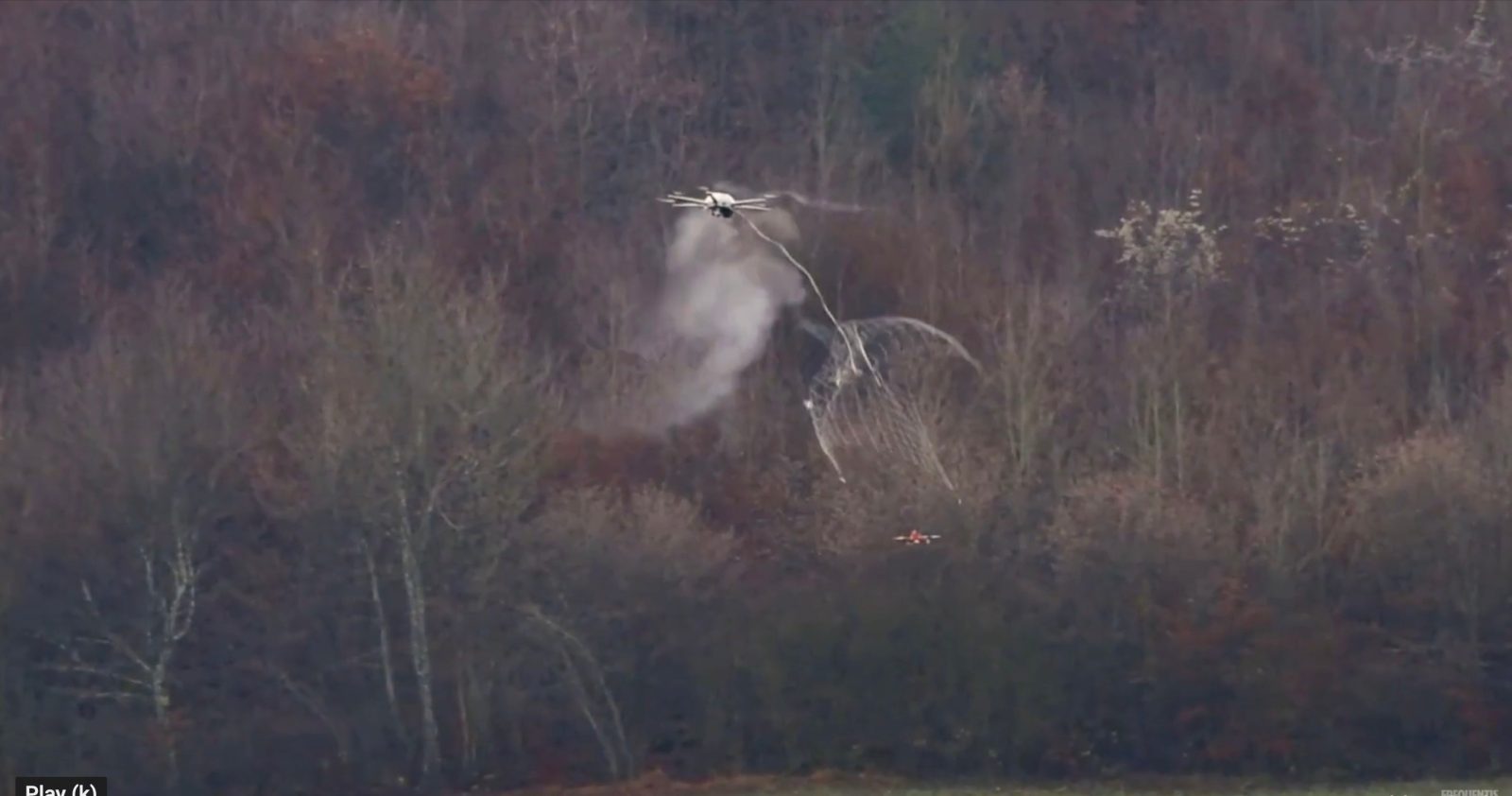
German authorities have successfully tested an anti-drone system to protect restricted airport airspaces from invading craft, combining artificial intelligence (AI), tag-teaming sensors, and low-tech – but very efficient – nets spat by pursuing uncrewed aerial vehicles (UAV).
On Thursday, officials announced the successful trials conducted earlier in the week over a field near the Hamburg airport. The anti-drone system – known as the Falke Project – uses ground-based units that detect unauthorized craft in restricted areas around airports. Those interface with surveillance tech operated by other facility stakeholders to swap location and other information on invaders. The rapid processing of that data in a wider, super-fast network allows policing UAV to be quickly dispatched, and fly up to 120 km/h to catch up with and snare unauthorized craft with grasping nets shot from a safe distance. Intruders are then transported away from passenger plane corridors, where they can be examined and used to prosecute their operators.
Though initial detection is the work of ground-based systems – including the one developed for Falke – the linking of those assets is designed to accelerate the decision and command process getting the fleet of specially built UAV into action.
“Falke uses the most modern detection technologies and links their data with those of the existing infrastructure,” notes a press release by Frequentis, a German tech company specializing in building safety-critical communications and data platforms. “This creates an innovative airborne defense system, making it possible to react immediately to unauthorized drone intrusions and eliminate the cause of the disruption.”
That same enhanced data and speed is at work once the system’s own UAVs are dispatched.
“The ongoing and effective algorithmic merging of the available data avoids costly downtimes caused by false alarms,” Frequentis says. “The airport operator has all of the information needed at hand to remove foreign objects from the area of operation and to be able to resume operation immediately. ATC receives feedback from all parties involved in real time and can therefore resume operations without unnecessary delays.”
Falke is overseen and financed by Germany’s Ministry of Transport and Digital Infrastructure, and is also backed by array of public and private players in air transport activity. The $2.3 million in development aid the effort has received allowed initial trial to begin last June, culminating with this week’s successful live simulation. Additional testing will continue to work around eventual atmospheric complications such as inclement weather.
FTC: We use income earning auto affiliate links. More.



Comments